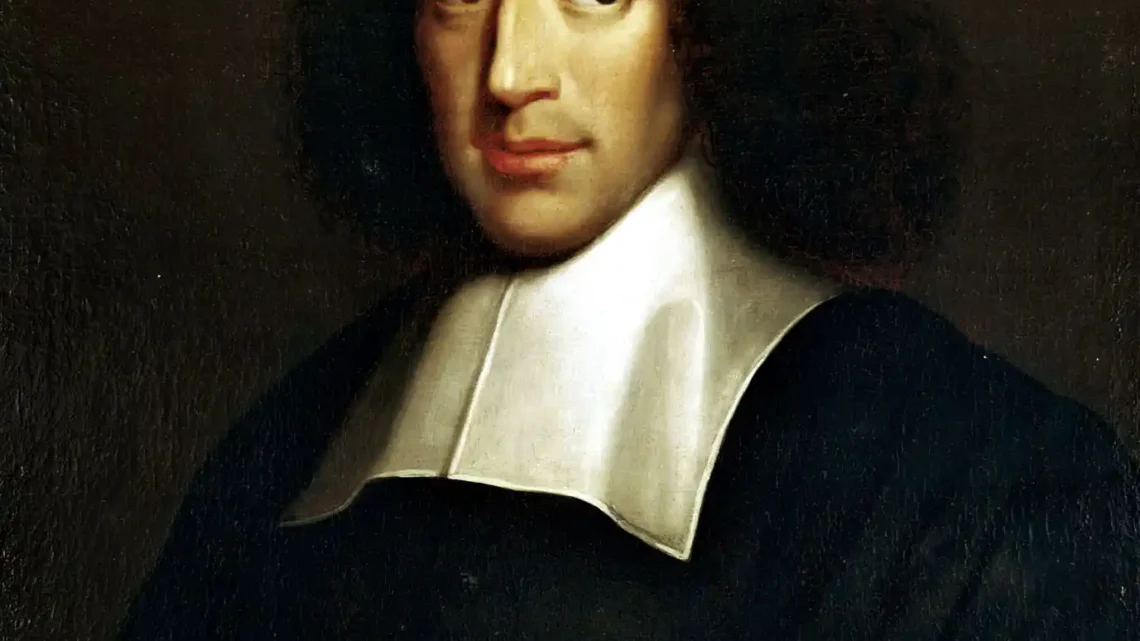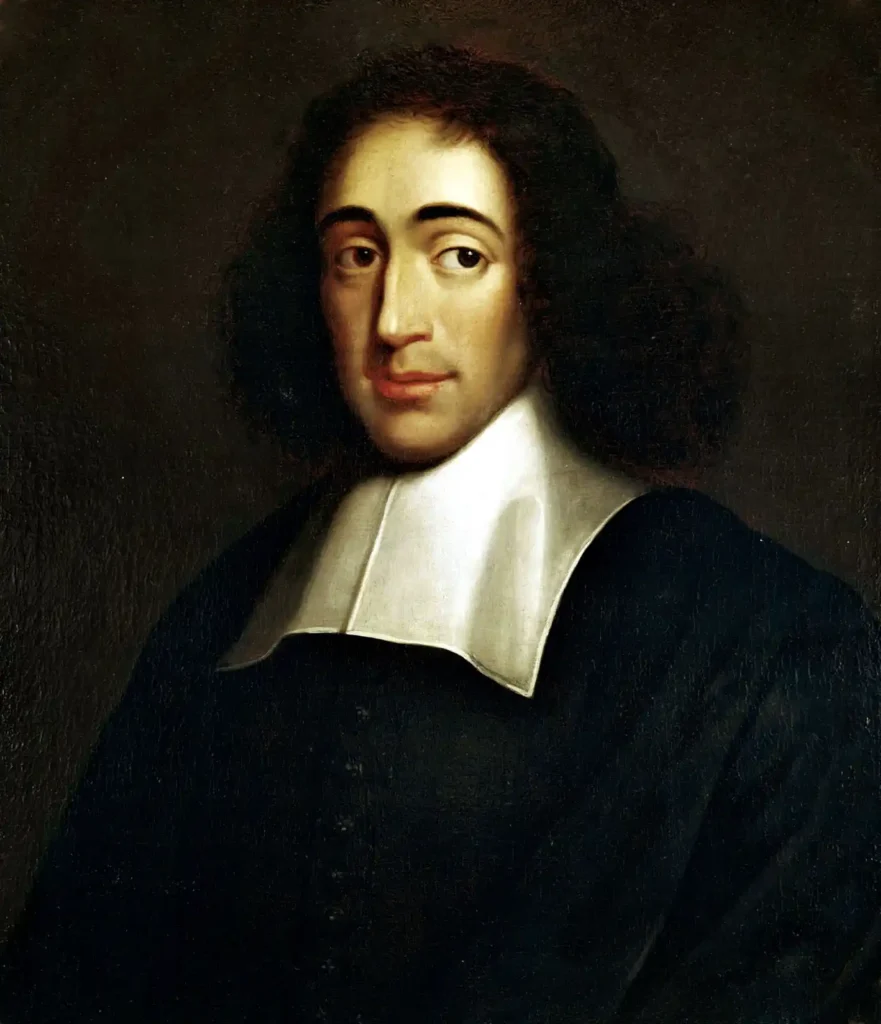
Benedict Spinoza Biography: Age, Death, Books, Philosophy, Excommunication, Net Worth, Parents, Wife
0 Posted By Haruna AyubaBenedict Spinoza was a Dutch philosopher of Portuguese-Jewish origin whose radical ideas in metaphysics, ethics, and religion made him one of the foremost thinkers of the 17th century.
He became especially well known through his work Ethics, published posthumously, in which he presents a view of God and Nature as one and argues for a deterministic universe in which human freedom lies in understanding necessity.
Trending Now!!:
- Lilit Hovhannisyan Biography: Husband, Ethnicity, Awards, Net Worth, Age, Height, Parents, Songs
- Meet Sarina Wiegman’s Children: Lauren Glotzbach and Sacha Glotzbach
- Tornike Kipiani Biography: Ethnicity, Awards, Net Worth, Height, Songs, Age, Instagram
- Małgorzata Maier Biography: Tv Shows, Husband, Net Worth, Ceramic Brand, Age, Height, Daughter, Awards
- Meet James Brolin’s Kids: Josh Brolin, Jess Brolin, and Molly Elizabeth Brolin
Spinoza’s writings—such as Tractatus Theologico-Politicus—provoked controversy for questioning traditional religious authority and scripture, yet they laid groundwork for modern biblical criticism, secularism, and Enlightenment thought.
His influence endures in philosophy, theology, political theory and beyond.

Profile
- Full name: Baruch (Bento, Benedictus) de Spinoza
- Date of birth: 24 November 1632
- Age: Deceased
- Gender: Male
- Place of birth: Amsterdam, Dutch Republic
- Nationality: Dutch (of Portuguese-Jewish origin)
- Profession: Philosopher, lens-grinder, writer
- Parents: Father: Michael (Miguel) de Spinoza; Mother: Hannah (Hanna Deborah) de Spinoza
- Siblings: He had a brother Gabriel, involved in the family business (sources also note sisters Miriam and Rebecca)
- Spouse: Never married
- Children: None
- Relationship status: Single
- Religion: Born Jewish; later excommunicated from Jewish community
- Ethnicity: Sephardic Jewish (Portuguese Jewish)
- Net worth: He lived modestly on earnings from lens-grinding
Early Life and Education
Baruch (Bento, Benedictus) de Spinoza was born on 24 November 1632 in Amsterdam.
He was the son of Marrano (crypto-Jewish) Portuguese Jewish parents who had fled persecution under the Inquisition.
His father, Michael de Spinoza, was a merchant and respected member of Amsterdam’s Portuguese Jewish community; his mother, Hannah (Hanna Deborah), died in 1638, when Spinoza was about five.
Siblings include his brother Gabriel and sisters Miriam and Rebecca.
He received a traditional Jewish education at the Talmud Torah school and later studied Latin and secular subjects more broadly.
In early adulthood he attended (without taking a degree) philosophy lectures at the University of Leiden.
Personal Life
Spinoza never married and had no children.
After his father died in 1654, he increasingly distanced himself from communal authority, and on 27 July 1656 he was formally excommunicated (placed under herem) by the Portuguese Jewish community in Amsterdam for his “abominable heresies,” a ban never rescinded.
He supported himself modestly by grinding lenses and doing optics work, maintained friendships and wide correspondence (e.g., with Henry Oldenburg and many others), and lived simply to avoid public controversy even as his ideas drew intense reaction.
Career
Benedict Spinoza first worked in the family’s merchant business but left to focus on philosophy, optics, and independent study.
After his expulsion from the community he supported himself by lens-grinding while writing.
Key works include Tractatus Theologico-Politicus (published anonymously in 1670 by Jan Rieuwertsz in Amsterdam, with a false Hamburg imprint), which criticized scriptural literalism and ecclesiastical authority and argued for freedom of thought and secular governance; it was condemned and banned soon after publication.
His masterpiece Ethics, Demonstrated in Geometrical Order was completed in the 1660s and published posthumously in 1677.
He also wrote the unfinished Tractatus Politicus, the Short Treatise on God, Man, and His Well-Being, and an extensive Correspondence (Epistolae).
He was invited in 1673 to a chair of philosophy at Heidelberg by the Elector Palatine but declined to preserve his freedom to philosophize.
Spinoza’s health suffered from a lung illness—often identified as tuberculosis—possibly aggravated by fine glass dust from lens-grinding.
He died in The Hague on 21 February 1677 and was buried at the Nieuwe Kerk; archival and physical evidence indicate a rented vault later cleared in the 18th century, with today’s memorial outside the church.
Net worth
Benedict Spinoza had no large fortune; he lived a frugal life funded by:
- (1) income from lens-grinding and optical work; and
- (2) a private annuity fixed at 300 florins per year from Simon de Vries’s brother (Spinoza refused 500 as excessive).
Death
Benedict Spinoza died on 21 February 1677 at The Hague, aged 44.
He was interred at the Nieuwe Kerk; the present-day grave monument marks the site associated with his remains.
Controversy
Benedict Spinoza’s ideas were highly controversial in his time.
He was excommunicated in 1656; his Tractatus Theologico-Politicus (1670) was condemned by church authorities and banned, and his posthumous works later faced prohibitions by both secular and ecclesiastical bodies.
Core flashpoints included his identification of God with Nature, denial of miracles, and critical approach to Scripture.
Social Media
N/A (lived in 17th century)
Books
- Ethics, Demonstrated in Geometrical Order (published posthumously 1677)
- Tractatus Theologico-Politicus (1670)
- Short Treatise on God, Man, and His Well-Being (manuscript)
- Epistolae (letters / correspondence)
- Tractatus Politicus (unfinished)
NOTICE!! NOTICE!! NOTICE!!
At TheCityCeleb, we strive to provide accurate and up-to-date biographies and entertainment news, focusing on celebrities. Our editorial team researches information from reputable sources, including interviews, official statements, and verified media.If you spot an error or have additional details, please contact us at editor@thecityceleb.com. We value your feedback and are committed to maintaining trustworthy content.


